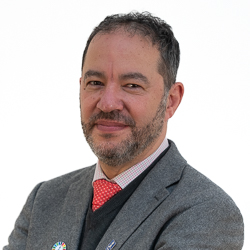Iraq
The Context
Iraq is an oil-rich upper-middle-income country with a population of 38.4 million in 2018, of which 29.5 per cent live in rural areas. Its agricultural sector is a vital component of the economy although it accounts for just 3 per cent of gross domestic product (GDP).
Its rural poverty rate – 31 per cent in 2012 – is a direct consequence of rapid population growth, conflict and insecurity. In addition, climate change has contributed to increasing water scarcity and accelerated desertification. The combined effects have reduced prospects for viable irrigated agricultural production and diminished sustainable income-generating opportunities for rural communities.
The unemployment rate in Iraq is estimated at 8 per cent nationally (7 per cent of males and 12 per cent of females). For youth (15-24 years) unemployment is high at 16.5 per cent (30 per cent for females and 15 per cent for males). There is considerable inequality in the labour force. Compared to 75 per cent of active men, only 13 per cent of women are working or actively seeking work, and most of the employed women are working in the agricultural sector.
Despite these challenges, the country has great potential. Iraq’s National Development Plan identifies agriculture as one of the key sectors to accelerate non-oil growth, increase income distribution and gender equality.
The Strategy
A recently signed agreement between IFAD and Iraq has opened the door for IFAD to finance its first post-war agricultural investment project in Iraq. Until now, IFAD’s contribution to Iraq was limited to a regional grant for agricultural research.
IFAD will invest in a seven-year investment project loan and grant of about of US$16.23 million, complemented by a $2 million grant from the Adaptation for Smallholder Agriculture Programme (ASAP), and US$9.21 million from the Adaptation Fund.
The overarching goal for IFAD's engagement in Iraq is to support the Government’s priorities and national agricultural programmes aimed at increasing the productivity and income of smallholder farmers, while at the same time enhancing resilience to climate change.
The project will invest in upgrading irrigation infrastructure, improving food security and nutrition, and reducing poverty by increasing farm and off-farm incomes.
The project will contribute to reducing vulnerability and increasing the incomes of poor rural communities in the 4 southern Governorates of Missan, Muthana, Thi Qar and Qadisiyah; enhancing resilience to climate change of smallholder crop and livestock production systems; and enhancing the productivity and profitability of small-scale crop and livestock producers through access to financial services, technologies and remunerative markets.
Country Facts
6 million Iraqis were displaced during the conflict from 2014 to 2017. Four million have returned to their communities while 1.8 million remain displaced.
Iraq’s rural poverty rate (31 per cent in 2012) is more than double that of urban poverty (15 per cent).
Only 13 per cent of women are economically active, compared to 75 per cent of men.

